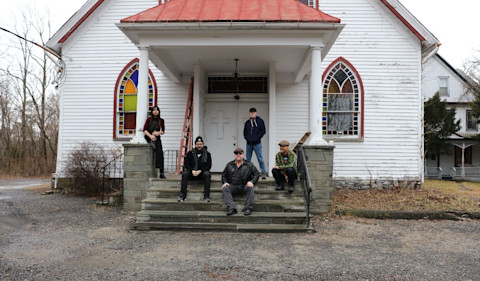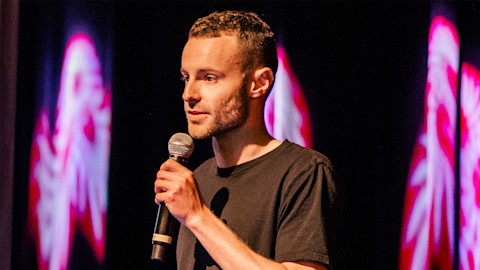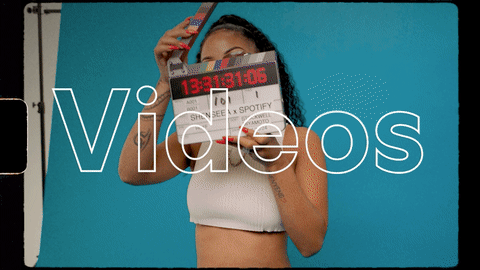Stories
Experimental Composer Kelly Moran on Finding Your Sound

Her work with prepared piano is leaping across classical music boundaries.
It’s extremely tough to break through as a young classical musician, and even if you do, it takes a special kind of magic to do it in a way that bridges genres and captivates a broad audience. But with a meticulous blend of sprawling prepared piano—a technique involving placing objects in the strings of a piano to give it a more atonal, percussive sound—and warm, heavy synths, pianist Kelly Moran has done exactly that.
After completing her MFA in Integrated Composition, Improvisation and Technology at UC Irvine in 2012, she moved to New York, supporting herself by accompanying ballet and modern dance classes at the Martha Graham School, Ballet Hispanico, Barnard College, and elsewhere. The life of an accompanist is brutal—insane schedules, challenging music, demanding clientele—and it took Moran out of composing for a while. In 2016 she began searching for a way back in, and fell in love with the possibilities of prepared piano. One of the products of this new path, 2017’s Bloodroot, put Moran on the map as she secured spots on year-end lists by The New York Times, Bandcamp, Rolling Stone, and elsewhere.
But Moran didn’t stop there. Challenges with some of her commissioned projects helped her hone her sound as she continued channeling her voice into kaleidoscopic new textures. In 2018 she completed her dazzling follow-up, Ultraviolet, which was produced by Oneohtrix Point Never’s Daniel Lopatin. Lopatin helped get her music in front of Warp Records—home of Aphex Twin, Yves Tumor, and Autechre—where she was encouraged to bring her expansive vision to its fullest realization yet. Moran’s continuous quest to differentiate herself has helped her find a weirdly irresistible form of expression, one that has somehow broken out of the archaic barriers of serious classical music and found its way onto the radar of listeners of all types. Spotify for Artists caught up with Moran to discuss her evolution as a composer and how she came to find the unique sounds that she’s now known for.
Spotify for Artists: When did you decide to start experimenting with prepared piano?
Kelly Moran: I had been studying prepared piano music for several years, just as a student. I performed a lot of John Cage’s music, and all these other pieces that utilize different kinds of extended techniques. And I had written music that had extended techniques in it, like plucking the strings or EBowing the strings, but I’d never actually written something for prepared piano, because I knew the second I did it, people would compare me to John Cage. And that really wasn’t something I felt comfortable with for a long time.
Basically, I was stuck at my parents’ house for a weekend, and there was a snowstorm that prevented me from going out. I thought, “Well, I can’t leave my house, so I might as well record. Why don’t I try writing something for prepared piano?” I got my dad’s toolbox and I just started experimenting with putting different screws and bolts in the strings. As soon as I’d prepared the piano, as soon as I sat down and started playing, I couldn’t believe how amazing it sounded and how immediately it opened up these new timbral and tonal possibilities for me. It changed the way I approached writing for the instrument, because all of a sudden I’m hearing overtones, I’m hearing harmonics. The attack of the key is completely different. It changed everything about how the piano sounded, and I felt like I was working with a completely new instrument. And that was really inspiring for me. That’s when I made Bloodroot.
Who would you say your main influences in experimental and avant garde music have been?
There’s a couple of people who I think are particularly important for me. I know this is going to seem really obvious, but the main one is absolutely John Cage. Like philosophically—it’s not just the prepared piano. He has so many ways that he approaches making music, whether it’s through chance or through other experiments that he’s done. And then, of course, more specifically, on a timbral level he’s been the most instrumental influence in prepared piano for me. But then there’s also people like Henry Cowell and George Crumb, who also pioneered all these ways of playing piano differently, like by strumming the strings, scraping them. Composers who really went out of their way to coax out these more experimental sounds from their pianos that nobody else was doing.
Ultraviolet is a lot more rooted in tonal music than your last album, Bloodroot, was. Were there any popular influences, things you were listening to while you were working on this one?
I think it was actually a reaction to me writing very atonal music, because prior to making the music on the record, I was working on a commission for an instrumentalist who was extremely experimental and was basically pushing me to write something that was out of my comfort zone, which I enjoyed doing. But I felt like I was being pushed in a direction that was way too far out of what I would consider to be my voice. This person just wanted me to make something that was more dissonant and more angular than I felt comfortable with. I kept writing all of these things, and then I would listen to them and I would think, “This doesn’t sound like myself. This doesn’t sound like me at all. It sounds like I’m trying to emulate someone else.”
So, I had this day where I decided that I wasn’t going to think about that commission, I was just going to go for a walk in the woods and clear my head. Take a day off from worrying about this project. And what ended up happening is I had an experience where I was in the woods and thinking about how my music felt. Like, “How can I take a different approach so that my music doesn’t sound so forced and labored?” And I just froze—I ended up going to my piano and improvising. I wasn’t really thinking about how it would sound or what my stylistic influences were. I was just playing and I was reacting to these feelings I was having. I was just letting myself go.
How does it feel composing on an instrument that a lot of people associate with old music, so to speak? Were you worried that people wouldn’t get it? Or did you feel confident you were doing something apart?
The first wave of reactions I got from labels to this music were not super-positive, because I think just the timbre itself is so different from what people are used to. I got a lot of rejections for Bloodroot. The same criticism I kept getting from labels was, “This is cool, but it’s just too different, it doesn’t really fit in with anything we’re doing. It would stick out too much.” It was a little bit discouraging, because I knew I was doing something unique. It just seemed like people didn’t have faith that anyone would enjoy it.
I got really surprised by the amount of positive reviews I got for Bloodroot. I remember there was this moment in a PR meeting for the album when we were discussing who to send it to and someone said The New York Times, and then someone else laughed and was like, “Oh, The New York Times is not going to hear this.” And they all kind of laughed. And in my mind, I was like, “Why not? They have interesting standards. Who knows?” And they did end up liking it, and I got on the list [of The 25 Best Classical Recordings of 2017]. What I learned is that it can work to your advantage when you’re doing something different, because it ended up making me stand out.
—Adam Rothbarth
Spotify for Artists helps you to develop the fanbase you need to reach your goals.
video
How Julia Wolf Made It



